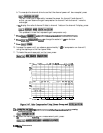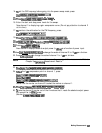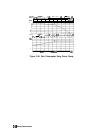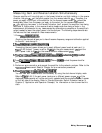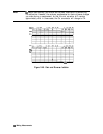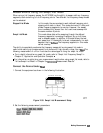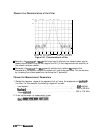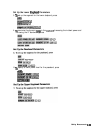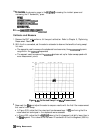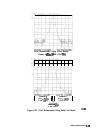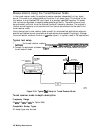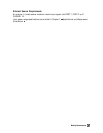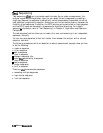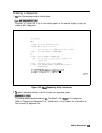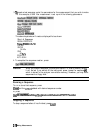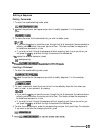
8.
Tbmaximiz
e
the dynamic range in the
stopband
(increasing the incident power and
narrowing the IF bandwidth), press:
~&j$&
;:.<...........:..
~~~~~~~~
Llo)
Ixl)
.i::.i..‘:::.
g$#&gg
~#i&
(300_)
Lxl]
.>......~~~A...
,....
::
c...:::~.:.~~..l:..
:. ;.;;;>..:?;::::
i.:..
4
:kG&’
.:;;::.::..
. . . .
..A
.:::
. . .
,.:.:.:....
..<:;.
.,:,:
:::::.y
..:...:.:..:
:.<
(d~$r~~
g-
Press
iJk&~
~~~~~~~~~~~~~h
-
ii
i./.i~.~.~.~~.~.~.~.~.~.~.~~.~.~...~.~.~.~.~...~.~.~.~...;;.~.~./
Calibrate and Measure
1.
2.
3.
Remove the DUT and perform a full two-port calibration. Refer to Chapter 5, “Optimizing
Measurement Results.
n
With the thru connected, set the scale to autoscale to observe the benefits of using swept
list mode.
n
The segments used to measure the stopbands have less noise, thus
maxinUng
dynamic
range within the
stopband
frequencies
n
The segment used to measure the
passband
has been set up for faster sweep speed with
more measurement points.
CENTER
900.000
000
MHZ
SPAN
500.000
000
MHZ
Figure
Z-52.
Calibrated Swept List Thru Measurement
Reconnect the
filter
and adjust the scale to compare results with the first filter measurement
that used a linear sweep.
n
In Figure 2-53, notice that the noise level has decreased over 10
dB,
conllrming that the
noise reduction techniques in the stopbands were successful
n
In Figure 2-53, notice that the
stopband
noise in the third segment is slightly lower than in
the
first
segment. This is due to the narrower IF bandwidth of the third segment (300 Hz).
244
Making Measurements



